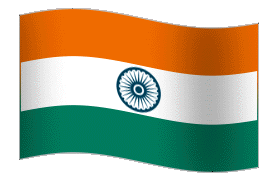COURSE WORK
Paper – 1st Research Methodology
UNIT – I
Introduction: Definition of Research, Qualities of Researcher, Components of Research Problem, Various Steps in Scientific Research, Types of Research; Hypotheses Research Purposes - Research Design - Survey Research - Case Study Research.
UNIT-II
Data Collection: - Sources of Data: Primary Data, Secondary Data; Procedure Questionnaire - Sampling Merits and Demerits - Experiments - Kinds - Procedure; Control Observation - Merits - Demerits - Kinds - Procedure - Sampling Errors - Type-I Error - Type-II Error.
UNIT-III
Statistical Analysis: Introduction to Statistics - Probability Theories - Conditional Probability, Poisson Distribution, Binomial Distribution and Properties of Normal Distributions, Point and Interval Estimates of Means and Proportions; Hypothesis Tests, One Sample Test - Two Sample Tests / Chi-Square Test, Association of Attributes - t-Test - Standard deviation - Co-efficient of variations - Index Number, Time Series Analysis, Decision Tree.
UNIT -IV
Statistical Application: Correlation and Regression Analysis - Analysis of Variance, Completely Randomized Design, Randomized Complete Block Design, Latin Square Design - Partial and Multiple Correlation - Discriminate Analysis - Cluster Analysis - Factor Analysis and Conjoint Analysis - Multifactor Evaluation, Two-factor Evaluation Approaches.
UNIT - V
Research Reports: Structure and Components of Research Report, Types of Report, Good Research Report, Pictures and Graphs, Introduction to SPSS.
References
- Wilkinson & Bhandarkar: Methodology and Techniques of Social Research.
- Pauline Vyoung: Scientific Social Surveys and Research.
- Panneerselvam, R., Research Methodology, Prentice Hall Of India, New Delhi, 2004.
- Kothari: Research Methodology.
- Festinger. L & D. Katz: Research Methods in Behavioral Science.
Paper- 2nd Computer Application
Introduction
Classification of computers, computer memory, types of software’s: application of system software’s operating systems and types, single user, multi user, multi-tasking single tasking, application of computer for business and research.
Data Communication and networks
Data communication concepts, local area network, wide area network, internet, intranet, extranet, website. Email, search engines-enterprise E communication and E collaboration
MS Office and its application
File handing in window, various versions of MS Office, M S-Word: Test formatting, Mail merge, Macro, M S-Excel: Features, various formulas and functions M.S. Power Point: Creating presentations and adding effects.
SPSS
Introduction to SPSS: Definition, objectives and features, data analysis using SPSS: Data entry creating variables, switching to data labels, data analysis: Frequencies, recording into different variables, cross tabulations and layers.
Application of Internet in research
INFLIBNET, Use of Internet, sights (DOAJ), Use of E Journals, Use of E- library, use of EBSCO HOST online database of Academic Libraries.
Paper – 3rdQuantitative Method
- Meaning and definition of quantitative method
- Arranging data to convey meaning – Tables, Graphs and Frequency Distribution
- Measures of Central Tendency and Dispersion
- Simple and Multiple regression and correlation
- Association of Attributes
- Probability – probability Distributions, Binomial, Poisson and Normal
- Liner Programming - Formulation and Graphical solution to two variables – Assignment Problems, Transportation problems
- Queuing Theory – Single Server And Multi-Server
- Markov chains with Simulation Techniques – Monte Carlo Simulation
- Game theory – 2x2 zero sum game with dominance – pure strategy and mixed strategy
- Decision Theory – 5 criteria of decision making
- Chi-square
- Discriminant Analysis
- Factor Analysis
- Cluster Analysis
- Multidimensional Scaling
- ‘T’ Test
- ‘F’ Test
- ‘Z’ Test
Paper – 4th Reviewing of Published Research in the Relevant Field
- Examining the methods of evaluating and interpreting published research.
- Developing skills needed to research available literature for information relevant to a given topic.
- Exploring the principles and techniques of topic/project development and testing.
- Examining the methods of evaluating and interpreting data collected in the research process.
- Developing an understanding of the various statistical methods that can be used to analyze data.
- Demonstrating the ability to use statistical analysis tools and apply them in decision making activities.
- Demonstrating the ability to create a template document that can be used to complete your research project or thesis
Course work Plan
1st Phase
- Research Methodology
- Computer Application
2nd Phase
- Quantitative method
- Reviewing of published research in the relevant field.
The above phase of course work classes shall be completed in a semester. The university shall manage part time or continue/residential classes for course work.
Study plan
- The course work classes are mandatory to attend 3 days in a month alternatively.
- The assignment should be submitted time to time.
- Evaluation examination held in end of course time.











